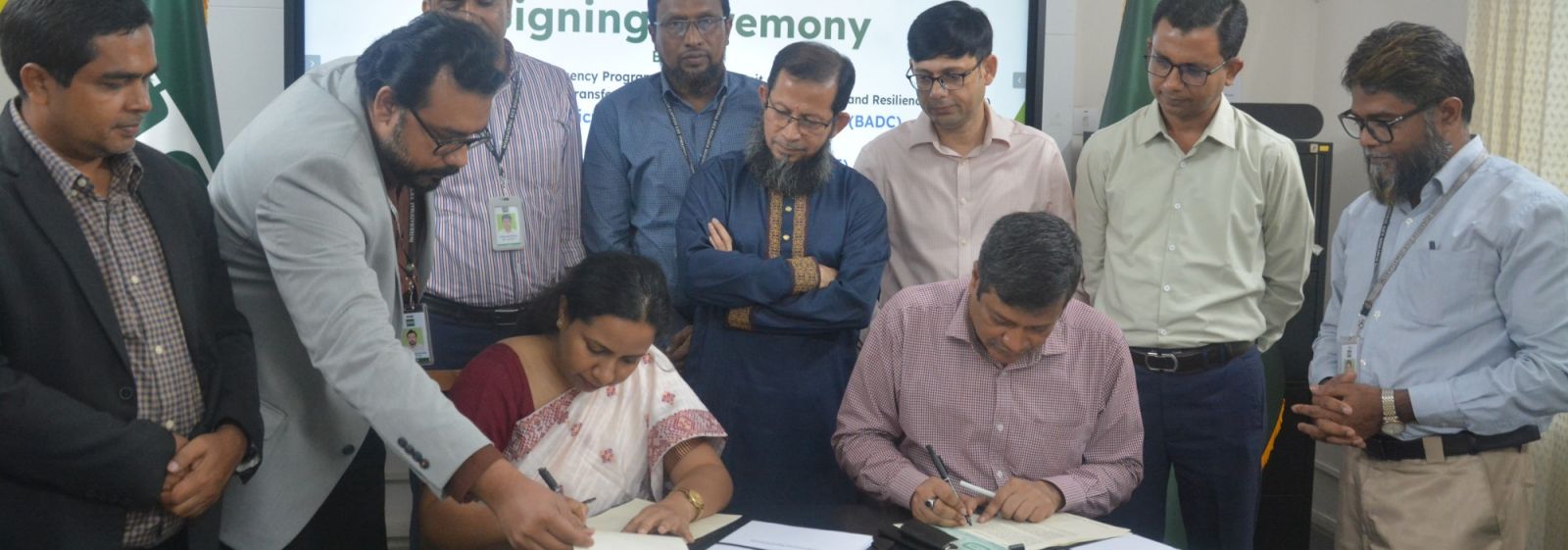IRRI-BADC launches digital tool to improve rice supply in Bangladesh

Seed supply planning in Bangladesh has faced several challenges over the years, including reliance on manual processes, fragmented data, and a tendency for reactive decision-making. These factors can often lead to mismatches between the availability of seeds and the actual demand from farmers, resulting in shortages of quality seeds or the distribution of varieties that may not be ideal for local conditions. Furthermore, the growing risks associated with climate change add additional pressure on productivity and resilience for farmers.
To effectively address these challenges, it’s important to consider innovative approaches to seed distribution. We recognize the need for systems that prioritize anticipation over reaction, utilizing real-time data while taking into account the changing varietal preferences of farmers, diverse agroecological zones, and the effects of climate variability. This calls for the development of tools that can accurately gather location-specific insights and incorporate them into national seed planning frameworks.
In a spirit of collaboration, the Bangladesh Agricultural Development Corporation (BADC), the World Bank, the Agency Program Coordination Unit (APCU), and the Program on Agricultural and Rural Transformation for Nutrition Entrepreneurship and Resilience (PARTNER) are working together with IRRI to launch a digital seed demand forecasting initiative. This initiative aims to shift from traditional paper-based forecasting methods to a more data-driven and participatory system that can enhance timely, demand-aligned, and climate-smart seed supply.

Caption: IRRI and BADC officials in the MoU signing ceremony at IRRI Bangladesh office
This partnership between IRRI and BADC is focused on creating an innovative digital platform designed to collect feedback from farmers, seed dealers, and other stakeholders. By integrating this feedback with agro-climatic data, the aim is to produce predictive insights that align ground realities with institutional planning. Through this collaboration, IRRI and BADC are working together to ensure that the right seeds are delivered to the appropriate locations at the right time. This initiative is intended to empower farmers and enhance the overall resilience of Bangladesh's rice production system.
Dr. Swati Nayak, South Asia Lead for Seed Systems and Product Management and Global Nodal for Inclusive Delivery at IRRI, stated, "Digitizing seed demand forecasting represents more than just a technical enhancement; it signifies a transformation in how Bangladesh approaches the planning, production, and delivery of seeds to farmers. With this tool, we aspire to establish a transparent, efficient, and inclusive seed system that genuinely addresses the evolving needs and demands of farmers while supporting food security."
The strategic objectives were further solidified during an inception workshop held in Dhaka on June 26, 2025, where over 50 experts, policymakers, and stakeholders came together to collaborate on strategies for building and scaling the platform. The event prioritized co-creation and consensus-building, with valuable contributions from participants representing the Bangladesh Rice Research Institute (BRRI), the Department of Agriculture Extension (DAE), seed companies, millers, and farmer groups, all offering essential insights to guide the initiative.
Highlighting the essential objectives of the project, Md. Ruhul Amin Khan, Director General of BADC, shared, "With this tool, our goal is to create resilient systems that effectively address the needs of farmers and align with our national food security objectives. This tool allows us to accurately capture real demand by considering factors such as location, climate, probability, and farmer preferences. By including informal seed actors and taking a grassroots approach, we can enhance our planning accuracy and respond more effectively during climate shocks."
The project will be implemented in phases. The first phase encompasses conducting gap assessments, engaging in stakeholder consultations, and collaboratively developing a working prototype. IRRI will extend technical support to ensure the tool meets the needs of Bangladesh’s evolving seed system and serves as a vital platform that links field-level realities with national policy.